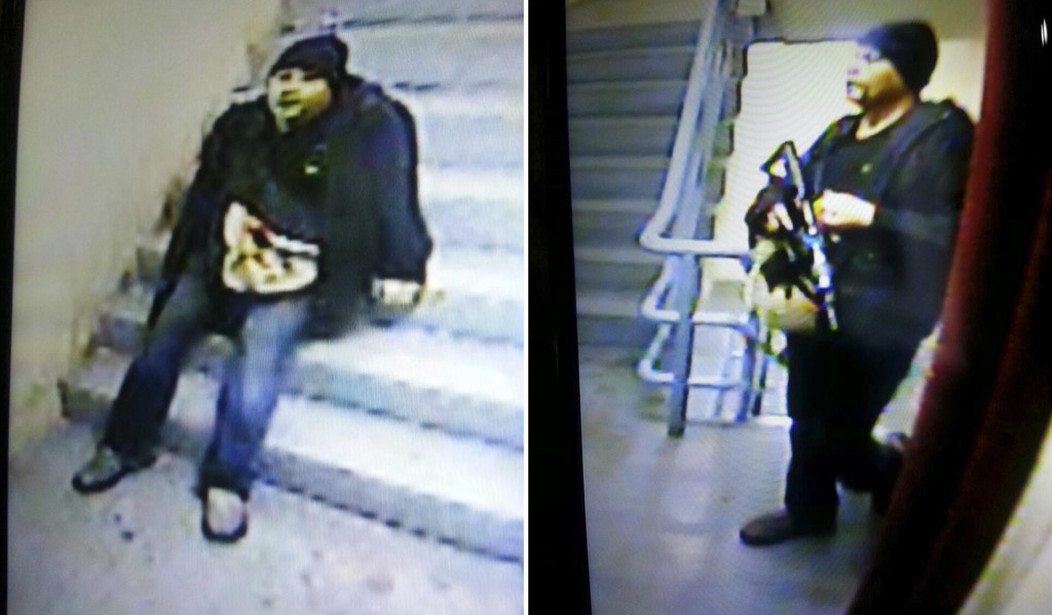An armed assault on a popular casino in Manila appeared to be another phase of the Philippines’ long struggle against Islamic terrorists, but it turned out to have a more traditional motive — greed. One gunman tried to steal money and chips from the casino while setting a fire as a distraction. Instead, he killed 35 people trapped in the smoke, and then killed himself when his plans went awry, ABC News reported early this morning:
At least 35 people died from smoke inhalation when a gunman stormed Resorts World Manila in the Philippines Thursday in an attempted robbery that saw him torch gambling tables, creating a choking amount of smoke, law enforcement and company officials said.
After attempting to flee with the casino’s gambling chips, the gunman left the casino to a room in an adjoining hotel, where he holed himself up before taking his own life, Resorts World COO Stephen Reilly said in a presser conference on Thursday.
Police told ABC News the initial investigation indicated that all of the victims, who were found mostly on two floors, died from smoke inhalation as the resort was set on fire.
That didn’t keep ISIS from claiming credit anyway:
#BREAKING IS claims Manila casino attack: Amaq agency
— AFP News Agency (@AFP) June 2, 2017
Perhaps more than other breaking-news events, one could understand why terrorism was an easy conclusion to reach early. Philippines president Rodrigo Duterte had declared martial law last month in Mindinao to put down an Abu Sayyaf rebellion on the southern island, and the rebel group had declared its solidarity with ISIS. The initial pattern of the attack — and incorrect reports of multiple gunmen — resembled other terror attacks such as Mumbai. Nevertheless, it’s a good reminder to keep an open mind on such incidents until all of the data is known.
Speaking precisely, this was a terror attack, but apparently just not a politically, ideologically, or religiously motivated one. The gunman intended to terrorize the casino in order to pull off the robbery, especially necessary to drive casino employees away from the cash and the chips, and one has to wonder whether he’d hoped the similarity to other terror attacks would increase the success of his effort. Those types of terror attacks are suicide missions, however, and this one turned out to be no exception. According to NBC, the perp got shot and had to retreat, which is apparently why he killed himself later. The terror strategy turned out to be a dead end.
Not that he didn’t almost pull it off:
Albayalde said the gunman had likely been addicted to gambling and ransacked a storage area where casino chips were stocked. He said the man made off with chips worth about 130 million pesos, or roughly $2.6 million.
That’s why the ISIS claim of credit seems like nonsense. ISIS terrorists don’t conduct robberies, and certainly not for chips. They hold ground and kill as many people as possible. According to police this morning, none of the deceased were shot, and no explosives were used. This looks more like a free ride off a badly bungled robbery.
Still, the gunman’s plan seems curious, too. What was his long-term plan for profiting off of the chips? What would have kept the casino from simply redesigning its chips and replacing them, thus making his haul obsolete? It might have taken a few weeks and cost considerable money, but $2.6 million is a pretty good incentive for invalidating the robber’s loot. He certainly wasn’t going to show up at a cashier window next week to redeem the chips, although perhaps the idea was to keep going back to the tables with them. Even then, though, a gambling addict had to know that casinos have cameras everywhere, and every dealer and cashier at that casino would have been looking for him — and every other casino in the area, too.
In the end, this is every bit as irrational and pointless as any other terrorist attack, if not more so.







Join the conversation as a VIP Member